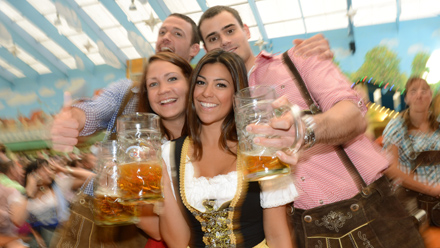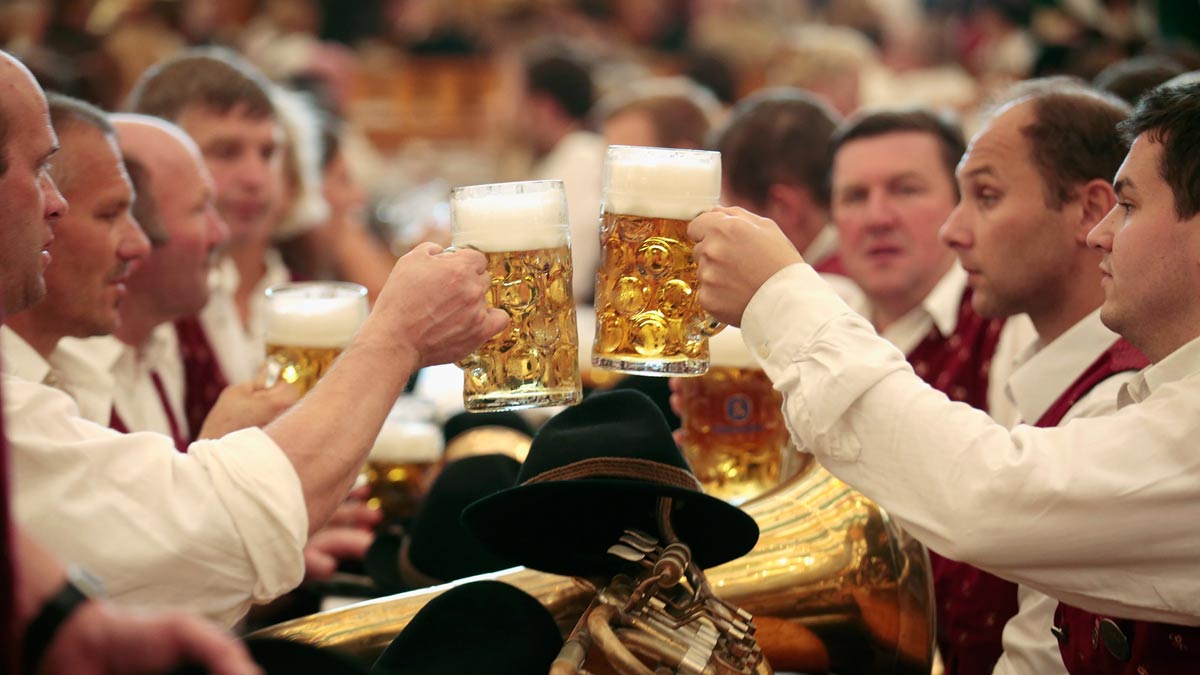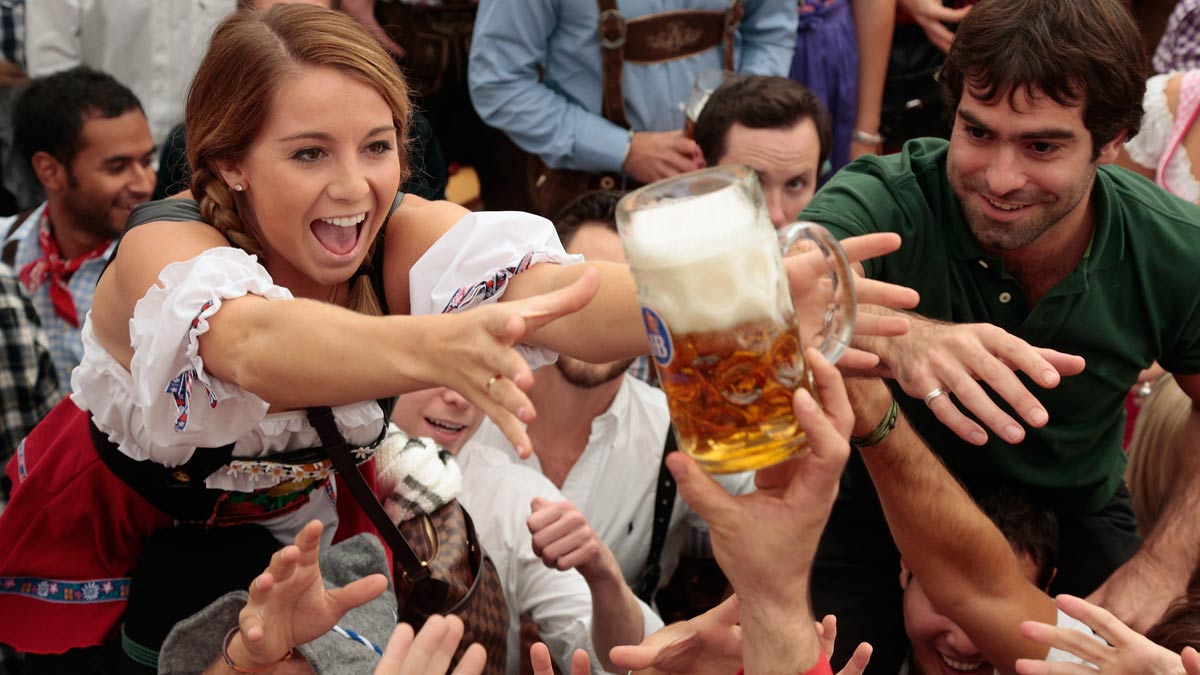Oktoberfest 2015: history and statistics of the annual beer party
Festival of lager and Bavarian culture is worth an estimated €1.1bn to German economy

A free daily email with the biggest news stories of the day – and the best features from TheWeek.com
You are now subscribed
Your newsletter sign-up was successful
Drinking will commence this Saturday in Munich as the 182nd Oktoberfest gets underway. As usual, the festival opens in September to beat the autumn rains – but revellers will still be enjoying the event 15 days later on 4 October.
What is Oktoberfest?
Originally a celebration of Crown Prince Ludwig's marriage to Princess Therese of Saxe-Hildburghausen, the festival has been around since 1810. While there are other aspects – including folk dancing, music, funfair rides, a costume parade and food – there is no doubt the event is centred on beer-drinking.
The Week
Escape your echo chamber. Get the facts behind the news, plus analysis from multiple perspectives.

Sign up for The Week's Free Newsletters
From our morning news briefing to a weekly Good News Newsletter, get the best of The Week delivered directly to your inbox.
From our morning news briefing to a weekly Good News Newsletter, get the best of The Week delivered directly to your inbox.
Why is it in September?
Initially, in the 19th century, it was an October festival, but organisers later decided to move it forward to September so that visitors could enjoy the gardens and fields in warmer weather. Traditionally the last weekend of the festival and the biggest celebrations do still occur in October. This year, that will be the 3 and 4 October.
How big is it?
Around 6.4 million people came last year. According to The Guardian's Ben Knight, the single biggest beer tent has a capacity of 9,992. There are 168 Oktoberfest apps in existence to help users manage the experience – and 878 metres of urinals for men.
A free daily email with the biggest news stories of the day – and the best features from TheWeek.com

What's on during the Festival?
There are 14 different tents to choose from, although there is one that doesn't serve beer. The Weinzelt tent offers 15 different types of wine and champagne to cater for those who aren't so keen on hops. Other tents to look out for are the 'Käfer's Wies'n-Schänke', the hotspot for celebrities and VIPs, and the 'Schottenhamel', the tent where the Mayor of Munich officially opens the festival by tapping the first beer keg.
Many of the tents offer traditional Bavarian dishes to compliment the copious amounts of alcohol on offer, with pig's trotters and warm potato salad a particular specialty. The festival's website contains all the details about the tents and their menus in 2015.
What does it mean for business?
It means about €1.1bn (£863m) in Munich alone, Knight says. A total of 12,000 people work on the Oktoberfest every year – and, of course, many others are employed by hotels and other businesses catering to revellers. Even US investor Warren Buffet will profit, says Bloomberg – his private jet firm is bussing attendees in from all over Europe.

How much does it cost?
That rather depends on how much you drink. Knight points out that the cost of a litre of beer crossed the psychologically-significant €10 barrier last year. Another hidden cost is a fine for public urination – €100.
What is that famous thigh-slapping dance?
The Schuhplattler, a traditional dance for Bavarian men wearing their leather lederhosen shorts, is apparently an ancient courtship ritual, first recorded in 1050 AD and possibly an imitation of the courtship dance of the capercaillie bird.

What if I can't make it to Munich?
Oktoberfest has become one of Germany's biggest exports, with cities across the globe joining in with their own festivals. Oktober Fest London runs between 8 and 11 October and promises "live music, full Oktoberfest decoration and thousands of people going crazy for the authentic Oktoberfest experience". Of course, not to be confused with London Oktoberfest which runs from 17 to 20 September in Camden and 1 to 4 October in Canary Wharf, allowing you to pick your German poison in the British capital.